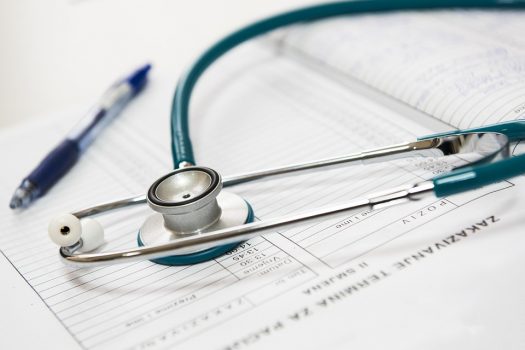A gastroenterologist position with a specialty in managing diseases related to your gastrointestinal tract. This includes your intestines, your liver, your colon, your pancreas, your stomach, and your esophagus. This type of training involves more than five years of extra education in gastroenterology and internal medicine after medical school.
When Should You Visit Your Gastroenterologist?
The unique experience of a gastroenterologist allows them to provide you with high quality and comprehensive care when treating G.I. conditions. Studies indicate that gastroenterologist actually performs higher quality services such as colonoscopies, and give more confidence in care than a traditional physician. This simply means they are better able to accurately identify things like cancer and polyps.

Normally, you will visit this type of professional when your primary doctor recommends it. Your doctor might notice symptoms of a GI disorder and send you a referral. If they notice any of the following, you may receive a referral:
- Bleeding from the rectum
- Leakage or underwear stains
- Difficult to control bowel movements
- Diarrhea
- Pale colored stool
- Dark urine
- Heartburn
- Abdominal pain
- Excessive gas
- Esophageal pain
- Vomiting
- Loss of appetite or weight loss
What Are The Different Signs Or Symptoms Of GI Disorders?
Well, there are many conditions you should watch out for, including the following:
- GERD
If you have dealt with severe and frequent heartburn for at least six months, and you have been put on PPI’s, but they are not helping, you might GERD. This is a manageable condition, so long as you make the necessary lifestyle changes and take advantage of the treatment options recommended by a doctor. You can make an appointment to talk over the options today with a Gastroenterologist in East Bay.
- IBD
If you have inflammation in your intestines, you might suffer from any number of diseases categorized as “inflammatory bowel disease” or IBD. Some symptoms include:
- Diarrhea
- Loss of appetite
- Joint pain
- Rectal bleeding
- Severe abdominal pain
- Unexplained weight loss
Remember that you might have all of these symptoms or just a few of them, and if you have IBD, the symptoms will most likely persist for a long time. You should talk to your doctor if you notice these symptoms and see if a test can be administered to narrow down the causes.
- IBS
Irritable bowel syndrome, or IBS, if not something that will cause permanent problems or lead to a life-threatening disease, but it is still very uncomfortable and something you may want to have examined. A doctor can help you control your symptoms. Symptoms include:
- Bloating
- Diarrhea
- Constipation
- Cramping
- Abdominal pain
Again, you can talk with a doctor if you have these symptoms and see about any lifestyle or dietary changes you might use.
- Celiac Disease
Celiac disease is an autoimmune disease wherein your body is unable to process gluten. A doctor can administer a blood test to determine if you suffer from this condition. Symptoms include:
- Itchy Rashes
- Weight loss
- Depression
- Fatigue
- Stomach pain
- Diarrhea
- Gas
Your Gastroenterologist In East Bay can also perform colon cancer screenings. This is done with a colonoscopy. A colonoscopy is a method of inspecting the rectum and color to check for cancer. To do this, a long tube is attached to a camera and pushed through the colon. The doctor will look for any polyps, perform biopsies if necessary, and otherwise assess rectal conditions. It is recommended that a colonoscopy is completed every ten years for adults, once they reach the age of 50. They should be done every ten years until around 75.
There are other tests that can be done to determine colon cancer risks, such as fecal blood tests or sigmoidoscopies. You can talk to your gastroenterologist to determine which test is best for your situation. You can also talk about the risks and benefits associated with each one so that you can make a more informed decision.
If you need any of these tests, or you are exhibiting symptoms for any of the aforementioned conditions, you can always visit your regular doctor and receive a referral if you do not have a gastroenterologist presently. Most people do not have one unless they have a specific condition, so start by making an appointment with your doctor to talk about your symptoms and see if you need a referral.

